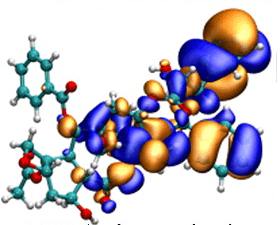| GPU brings molecular modeling to the desktop |
| Saturday, 20 November 2010 | |||
|
A new research paper summarises the state of the nation when it comes to using GPUs to implement molecular modeling and comes to the conclusion that it is finally "coming of age".
Published in the Journal of Molecular Graphics and Modelling, the paper's abstract explains the current position very well: Graphics processing units (GPUs) have traditionally been used in molecular modeling solely for visualization of molecular structures and animation of trajectories resulting from molecular dynamics simulations. Modern GPUs have evolved into fully programmable, massively parallel co-processors that can now be exploited to accelerate many scientific computations, typically providing about one order of magnitude speedup over CPU code and in special cases providing speedups of two orders of magnitude. This paper surveys the development of molecular modeling algorithms that leverage GPU computing, the advances already made and remaining issues to be resolved, and the continuing evolution of GPU technology that promises to become even more useful to molecular modeling. Hardware acceleration with commodity GPUs is expected to benefit the overall computational biology community by bringing teraflops performance to desktop workstations and in some cases potentially changing what were formerly batch-mode computational jobs into interactive tasks. The idea that the GPU can revolutionise computational science in this way is exciting and opens up all sorts of novel possibilities for creating software.
Unfortunately if you want to read more you will have to either request a copy from the authors (they seem to send out a PDF copy automatically) or pay a ludicrous $31 to download the PDF - unless your academic institution already has a subscription to the journal. John E. Stone, David J. Hardy, Ivan S. Ufimtsev, and Klaus Schulten. GPU-accelerated molecular modeling coming of age. Journal of Molecular Graphics and Modelling, 29:116-125, 2010.
|
|||
| Last Updated ( Saturday, 20 November 2010 ) |

